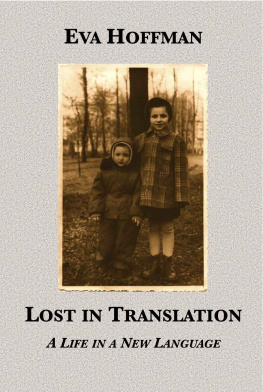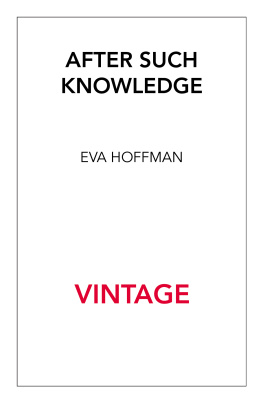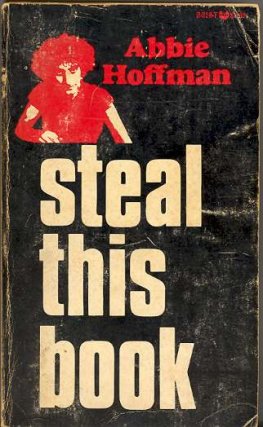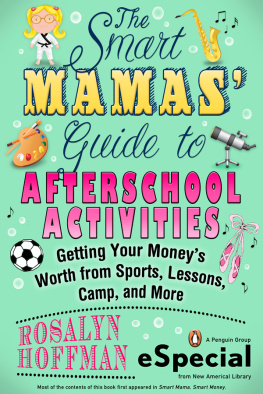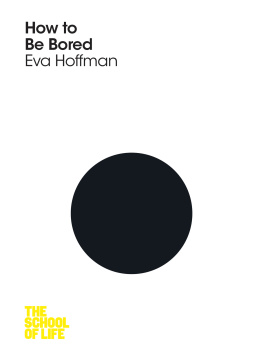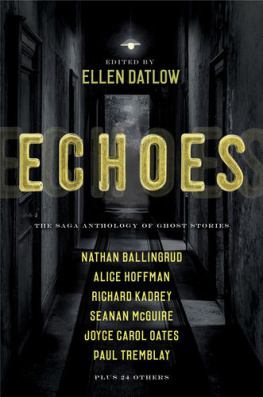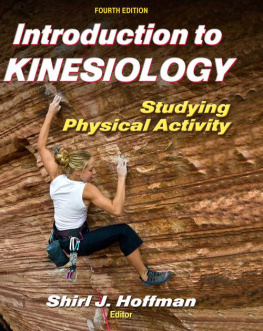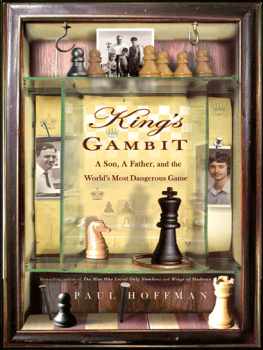Eva Hoffman - How to Be Bored
Here you can read online Eva Hoffman - How to Be Bored full text of the book (entire story) in english for free. Download pdf and epub, get meaning, cover and reviews about this ebook. year: 2017, publisher: Picador, genre: Religion. Description of the work, (preface) as well as reviews are available. Best literature library LitArk.com created for fans of good reading and offers a wide selection of genres:
Romance novel
Science fiction
Adventure
Detective
Science
History
Home and family
Prose
Art
Politics
Computer
Non-fiction
Religion
Business
Children
Humor
Choose a favorite category and find really read worthwhile books. Enjoy immersion in the world of imagination, feel the emotions of the characters or learn something new for yourself, make an fascinating discovery.

- Book:How to Be Bored
- Author:
- Publisher:Picador
- Genre:
- Year:2017
- Rating:5 / 5
- Favourites:Add to favourites
- Your mark:
- 100
- 1
- 2
- 3
- 4
- 5
How to Be Bored: summary, description and annotation
We offer to read an annotation, description, summary or preface (depends on what the author of the book "How to Be Bored" wrote himself). If you haven't found the necessary information about the book — write in the comments, we will try to find it.
How to Be Bored — read online for free the complete book (whole text) full work
Below is the text of the book, divided by pages. System saving the place of the last page read, allows you to conveniently read the book "How to Be Bored" online for free, without having to search again every time where you left off. Put a bookmark, and you can go to the page where you finished reading at any time.
Font size:
Interval:
Bookmark:
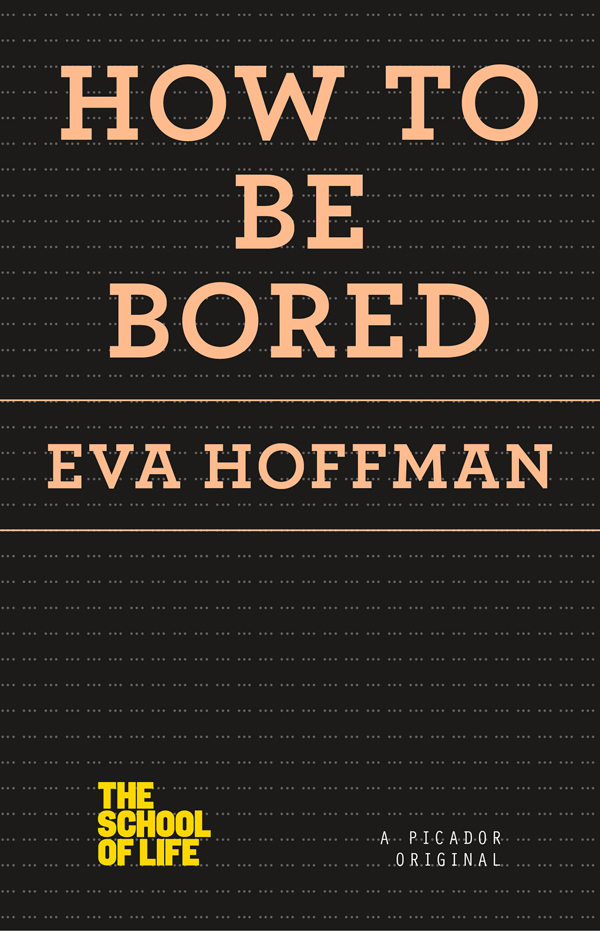

T HE S CHOOL OF L IFE is dedicated to exploring lifes big questions: How can we fulfill our potential? Can work be inspiring? Why does community matter? Can relationships last a lifetime? We dont have all the answers, but we will direct you toward a variety of useful ideasfrom philosophy to literature, psychology to the visual artsthat are guaranteed to stimulate, provoke, nourish, and console.

THESCHOOLOFLIFE.COM
In an age of moral and practical confusions, the self-help book is crying out to be redesigned and rehabilitated. The School of Life announces a rebirth with a series that examines the great issues of life, including money, sanity, work, technology, and the desire to alter the world for the better.
A LAIN DE B OTTON, T HE S CHOOL OF L IFE S ERIES E DITOR
Youve had a normal, and normally harried, day at the office. Urgent decisions had to be made on the hoof, and an awkward exchange with your boss left you a bit rattled. Youll have to figure out later what it was about. On the way home, on the underground, you open your favourite computer game on your smartphone. Several text messages have arrived from your friends suggesting the evenings activities; youll have to check out the various entertainment venues. At home, you text your partner to say where to meet you later, and try to answer as many emails as possible before going out. The evening is lively and full of laughs, and it goes on till quite late that night. Back home, you look at the Twitter messages which have accumulated during the evening. Some left-over dross of the day is nagging at you, and as you crash for the night, you feel an odd sense of uncertainty. Surely, your day was busy and exciting. Why, then, do you feel as if you somehow missed it, as if it didnt leave anything behind?
* * *
This is a book about a problem which is elusive partly because it is so pervasive. It is a problem of excessive busyness and overfilled schedules, and their effects on our mental and emotional lives. It is also about how we might address and counter such problems, for the sake of experiencing our lives more fully.
There have been periods when the great difficulty, at least for some people and social classes, was having too much time on their hands, and the ever-present danger of boredom. Here is Sren Kierkegaard, the nineteenth-century Danish philosopher, on the subject: How dreadful boredom is how dreadfully boring I lie prostrate, inert; the only thing I see is emptiness, the only thing I live on is emptiness, the only thing I move in is emptiness.
Lethargic inactivity can be debilitating and depressing; but for us, the pendulum has swung far in the other direction. We live in a hectic, hyperactive, over-stimulated age. Since the introduction of the internet and digital technologies, we have infinite quanta of information, visual imagery, personal communications and impersonal text available to us anywhere and at any time. In the non-virtual realm, too, our world offers a constant supply of activity, diversion and stimulation. In shops throbbing with crowds and bright lights, we can buy anything we can or cant imagine. At every turn, we are presented with a mind-boggling quantity of entertainment, high and low: YouTube, music festivals, art exhibitions.
The busyness of our lives is partly a response to these conditions, and to the demands of our complex, highly competitive societies. Most of us need to work hard in order to ensure a livelihood and basic comforts for ourselves and our families; and if we are to succeed, we are required to function at a high level of effectiveness and alertness. But our predilection for activity goes beyond meeting our basic or even comfortable needs. If we are middle-class, we are likely to work longer hours than we have to in order to fulfil the requirements of our jobs or than we have put in since workers were forced into punishing labour during the Industrial Revolution. Home life provides little relief: with perpetual access to the internet, maintaining ones health through exercise or attending to home improvements, it can be so busy that some sociologists have called it the third shift. In a culture that constantly presents us with images of glamour and luxury, we are often caught up in the cult of The Best: we want the best homes, best children, best vacations, best professional gigs. We think nothing of flying for twelve hours to a career-advancing meeting or a conference, the perils of jetlag notwithstanding. We absorb large quantities of culture, which may be all to the good; but too often, we consume culture in the spirit of well, consumerism. We do things in order to have done them, or simply to fill time with activity. And of course we spend some hours each day on our digital devices, whether we need to or not.
Even childrens schedules these days are filled up with extra lessons and other improving activities, and of course their young minds imbibe our underlying attitudes towards such things. Writing in the New Yorker a few years ago, the essayist Adam Gopnik describes his three-year-old daughter, who has invented an imaginary friend named Charlie Ravioli. She talks to him on her mobile phone and wishes very much to see him. The only problem is that he is always too busy to play with her; he is otherwise engaged. Three-year-old Olivia is, of course, imitating the adults in her world, whose diaries are always full and who are always in a rush; in some way, she understands that the adults consider this condition to be somehow desirable.
We have good reasons to be busy. But I believe that if we fill our days with useful or useless tasks, it is because in our over-stimulated environments we have become addicted to activity or what might be called hyperactivity itself. The digital environment, with its endless supply of instant stimulation and gratification, ups the ante tremendously.
Hyperactivity is addictive partly because it can give us a sort of hedonic pleasure. It introduces a welcome sense of eventfulness and dynamism into our lives. Being in motion and on the go can seem both invigorating and gratifying. When we look through our friends most recent postings on Facebook, or post a witty sentence on Twitter, we feel a small hit of pleasure. When we move from one appointment to another, from a power breakfast to a planning meeting in the office, we feel a sort of excitement about ourselves and our lives. When we drive ourselves to exhaustion by pushing ourselves to the limit of our energies, we may temporarily experience the kind of euphoria that marathon runners describe as runners high.
But after a while, incessant activity can leave us feeling depleted and oddly undernourished, as if the experiences we have been through have not taken root, or become part of ourselves. And, like any hedonic habit, it can lead to states of mind which are not pleasurable at all. Digital addiction is the most recognized of hyperactive syndromes. In Korea and China there are detox camps for addicted adolescents who appear to suffer terrible withdrawal symptoms as they attempt to stay unplugged. Elsewhere, there have been reports of virtual-world gamers dying from dehydration, as they are unable to leave their imaginary worlds for the ones in which their bodies exist. Dehydration is a serious condition, and a suggestive metaphor; compulsive fun turning into dangerous deprivation.
Font size:
Interval:
Bookmark:
Similar books «How to Be Bored»
Look at similar books to How to Be Bored. We have selected literature similar in name and meaning in the hope of providing readers with more options to find new, interesting, not yet read works.
Discussion, reviews of the book How to Be Bored and just readers' own opinions. Leave your comments, write what you think about the work, its meaning or the main characters. Specify what exactly you liked and what you didn't like, and why you think so.

